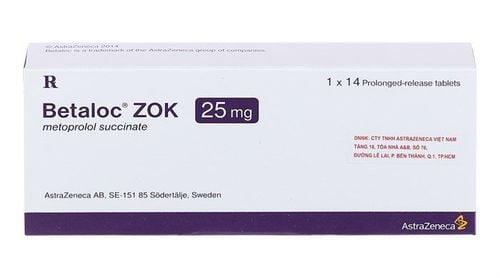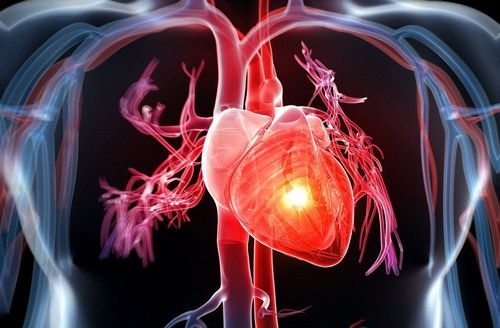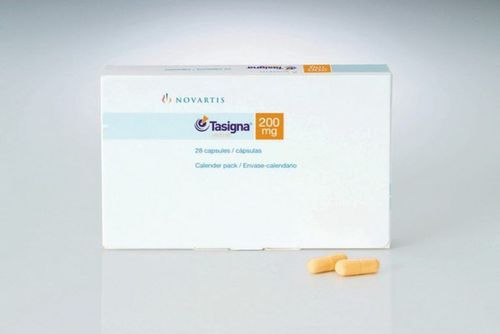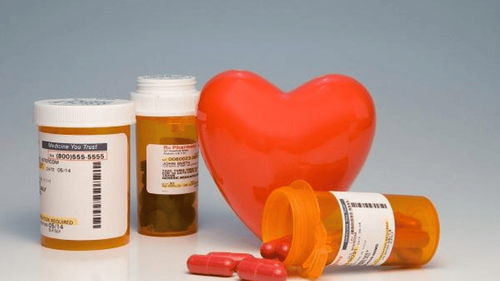This is an automatically translated article.
The article is professionally consulted by Master, Doctor Nguyen Tung Hoanh - Interventional Cardiologist - Department of Resuscitation - Emergency - Vinmec Nha Trang International General Hospital.Glyceryl trinitrate is a drug with vasodilator effects, prevention and treatment of cardiovascular diseases, angina pectoris. Once administered, Glyceryl trinitrate from under the tongue is rapidly absorbed into the bloodstream and provides pain relief within minutes. Patients treated with angina with Glyceryl trinitrate need a doctor's prescription, if not used correctly, it will be life-threatening.
1. What is angina?
Angina attacks usually come from the heart because the patient has a narrowing of the coronary arteries of the heart, leading to insufficient blood supply to the heart and making the heart lack oxygen to pump blood, causing pain and discomfort for the patient. Angina can begin in the chest and spread to the back, neck, left shoulder, and down the left arm.
Conventional angina treatment includes a statin drug to help lower blood cholesterol and low-dose aspirin to help prevent heart attacks, beta-blockers to help protect the heart and prevent angina. Sometimes, your doctor may recommend angioplasty or surgery to widen, or bypass, a narrowed artery.

Những cơn đau thắt ngực thường xuất phát từ tim gây ra cảm giác đau, khó chịu cho người bệnh
2. Caution when treating angina with Glyceryl trinitrate
Glyceryl trinitrate is a varicose vein drug, often indicated for patients with cardiovascular disease, angina pectoris, to help relieve pain quickly in patients. However, because it is a drug, patients should be careful when using it to avoid adverse effects, affecting health.2.1 Careful when choosing the drug Glyceryl trinitrate Glyceryl trinitrate in medium doses will dilate veins and reduce blood flow to the heart, helping to reduce pressure in the heart chambers and dilate veins in the arterioles.
If used at low doses, Glyceryl trinitrate has a slow and even distribution, so it will not cause hypotension and will not cause reflex tachycardia.
If Glyceryl trinitrate is used in high doses, it will dilate the arterioles and reduce arterial blood pressure in patients, causing sympathetic reflexes to make the heart beat faster:
For Glyceryl trinitrate injection, it will convert very rapidly metabolized in the liver of the patient and excreted by the kidneys as an intermediate; Glyceryl trinitrate treatment of angina pectoris in the form of sublingual administration will be very quickly and completely absorbed and after only about 2 minutes will reach the peak concentration, quickly absorbed into the smooth muscles of the vessel wall, causing effect, prolonging the effect. up to 30 minutes; Glyceryl trinitrate in aerosol form will reach peak concentrations after about 5 minutes. Glyceryl trinitrate is a rapid-acting injectable, sublingual and aerosol spray, suitable for the treatment of emergency angina. As for Glyceryl trinitrate paste (into the chest), it can be released evenly within 24 hours, but the effect is reduced very quickly after stopping the patch. This form of drug has a slower but more regular effect and is suitable for prophylaxis.
When treating angina for a patient, the doctor will base on the actual situation of the patient to select the appropriate dose and form of medication. Patients should strictly follow the doctor's instructions.
2.2 Careful about dosage Glyceryl trinitrate Glyceryl trinitrate can work by producing nitric oxide. However, in fact, nitric oxide is a toxic substance that harms the blood and causes vasodilation, causing low blood pressure, so if patients with angina take an overdose of Glyceryl trinitrate, it will be very dangerous.
In some special cases, patients may experience rapid hypotension, tachycardia, severe headache, visual disturbances, dizziness, abdominal cramps, nausea, increased intracranial pressure, collapse circuit....
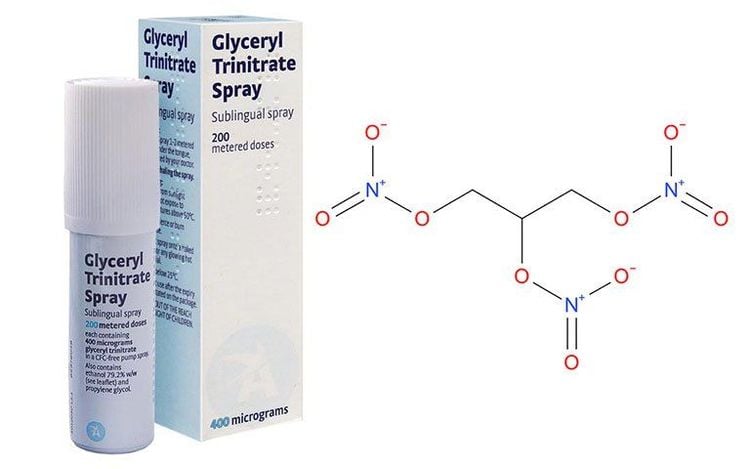
Thuốc Glyceryl trinitrat điều trị đau thắt ngực
2.3 Cautions about the use of Glyceryl trinitrate For long-acting Glyceryl trinitrate, it is necessary to use it first at a low dose and then increase the dose gradually, because high doses can cause angina pectoris in patients. sudden drop in arterial blood pressure and severe headache.
Patients absolutely must follow the dose and use of the doctor, should divide the daily dose into 2-3 times.
If you are taking high doses of Glyceryl trinitrate, you should not stop taking it suddenly, besides, continuous use can make the body become resistant to the drug.
2.4 Caution with interactions If Glyceryl trinitrate is used concurrently with drugs with antihypertensive effect, it will cause a sharp drop in blood pressure. Therefore, if it is necessary to combine drugs, it is necessary to carefully consider the dose and the starting dose must be low.
Patients should note that while using Glyceryl trinitrate to treat angina, do not drink alcohol.
After using Glyceryl trinitrate, the patient should sit or lie down to rest, especially cautious in cases of liver failure, severe kidney failure, malnutrition or hyperthyroidism.
3. What can be done to reduce the risk of angina?
In life, there are many factors that can cause the body to form atheroma and cause angina for patients. To reduce the risk of getting this disease, it is necessary to:
Give up the habit of smoking; For patients with angina, it is necessary to have regular health check-ups once a year. If high blood pressure is present, it should be treated immediately; For overweight and obese people, it is recommended to lose weight to reduce the burden on the heart; Treatment is needed if cholesterol is high; Form a habit of exercising every day and building a scientific, nutritious and healthy diet. In short, angina is a disease that can cause many dangerous complications if not treated promptly. However, when treating angina, the patient should absolutely follow the doctor's instructions on how to use the drug so as not to experience unfortunate consequences and reduce the effect of the drug.
Ths.BS. Nguyen Tung Hoanh has experience and strength in Cardiovascular Resuscitation - Emergency: Hypertension, Peripheral Vascular Diseases, acute and chronic coronary artery diseases, ..in addition, the doctor also treats other diseases. Comorbidities such as: Diabetes, Hyperthyroidism, Hypothyroidism, Kidney diseases, respiratory diseases,.. Currently, Dr. Hoanh is an interventional cardiologist at the Department of Resuscitation - Emergency - Vinmec Nha Trang International General Hospital.
Please dial HOTLINE for more information or register for an appointment HERE. Download MyVinmec app to make appointments faster and to manage your bookings easily.





